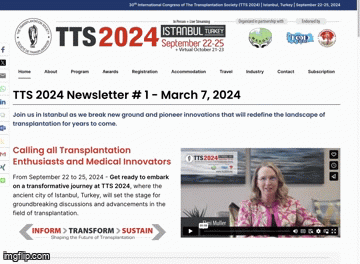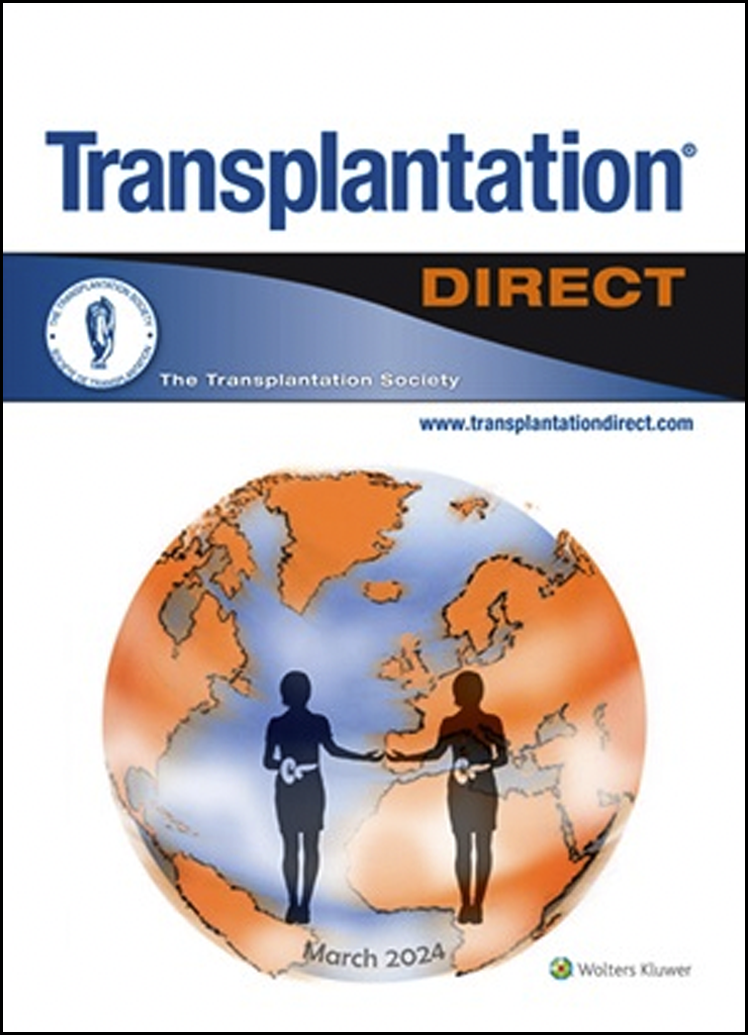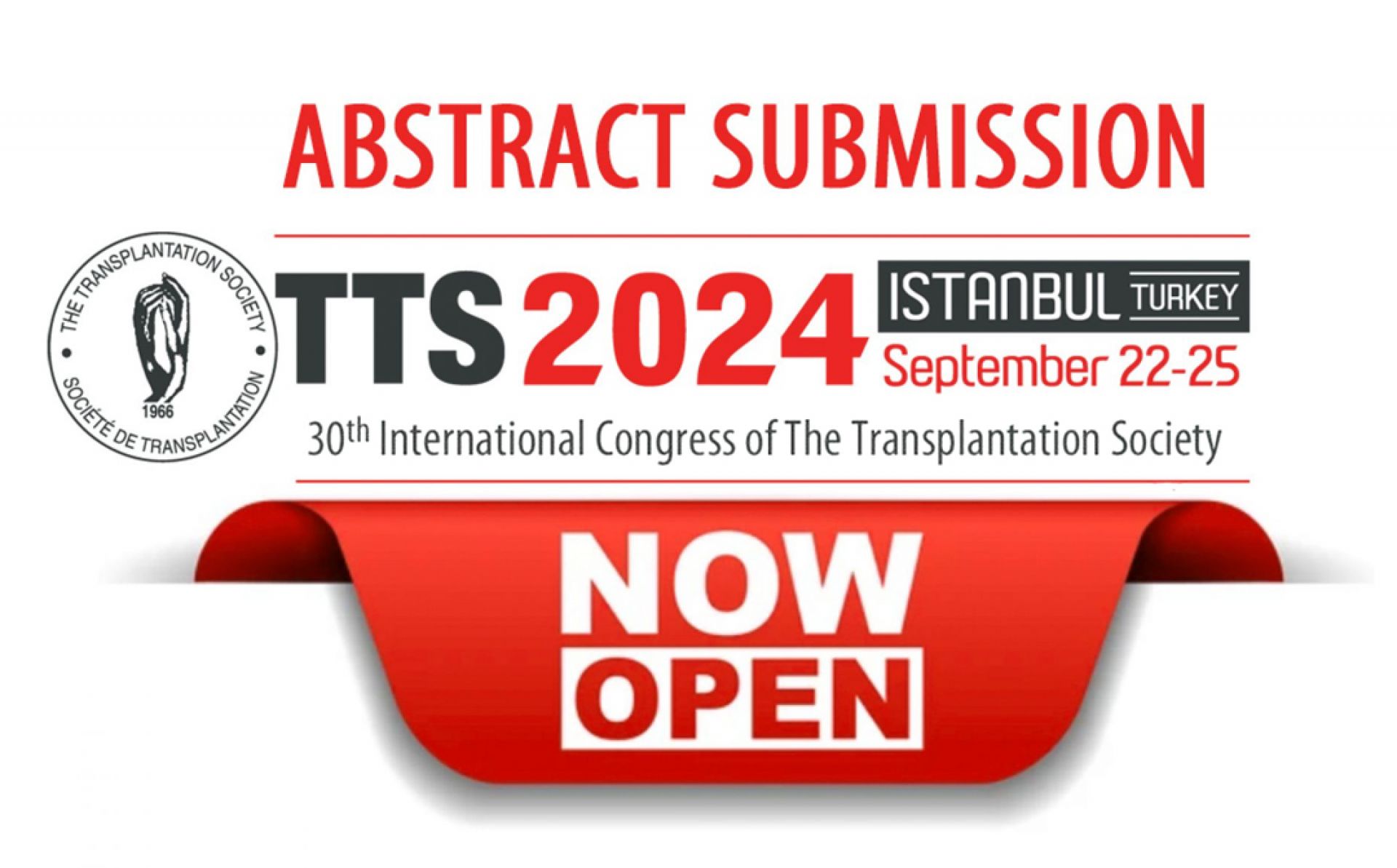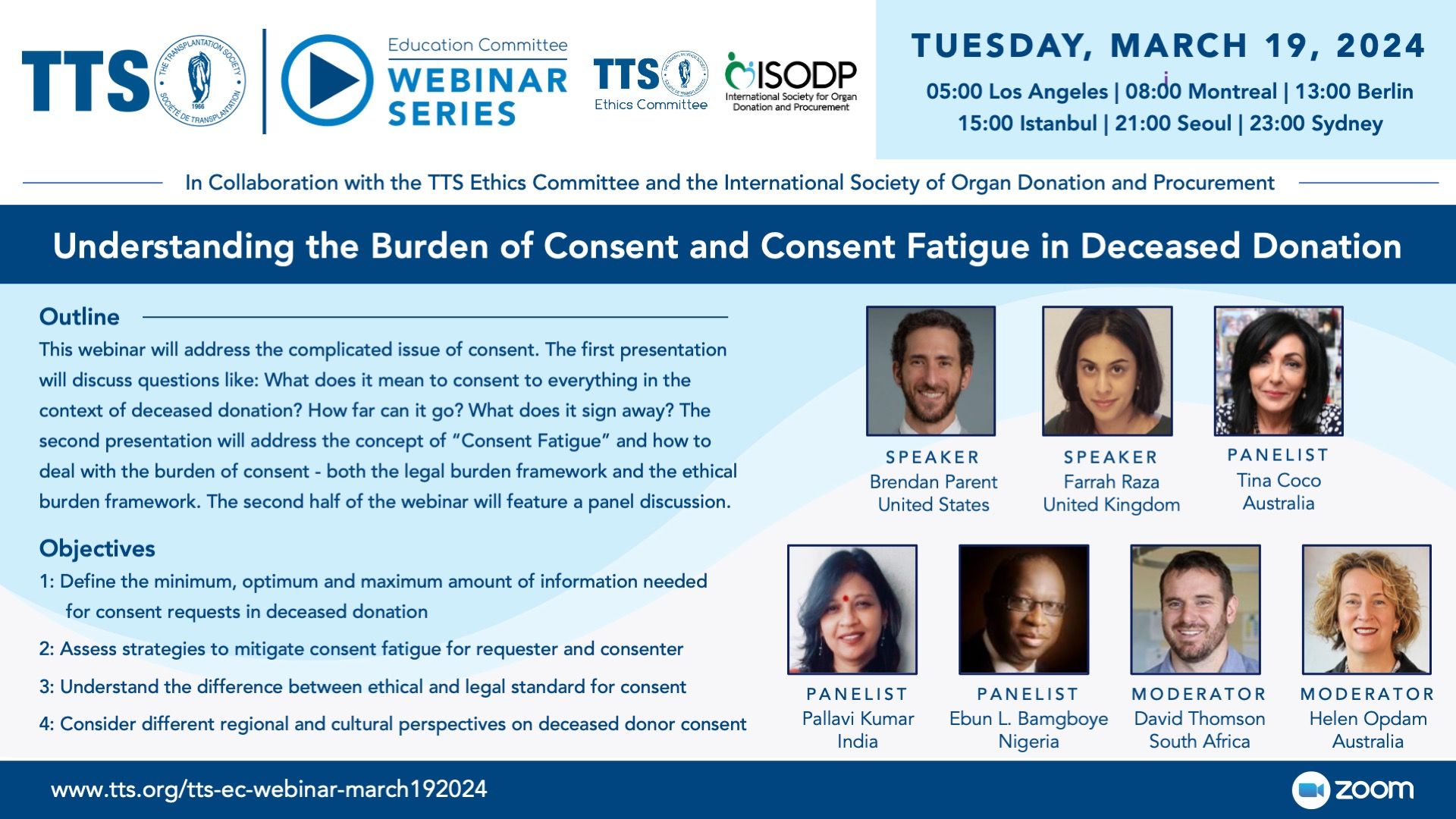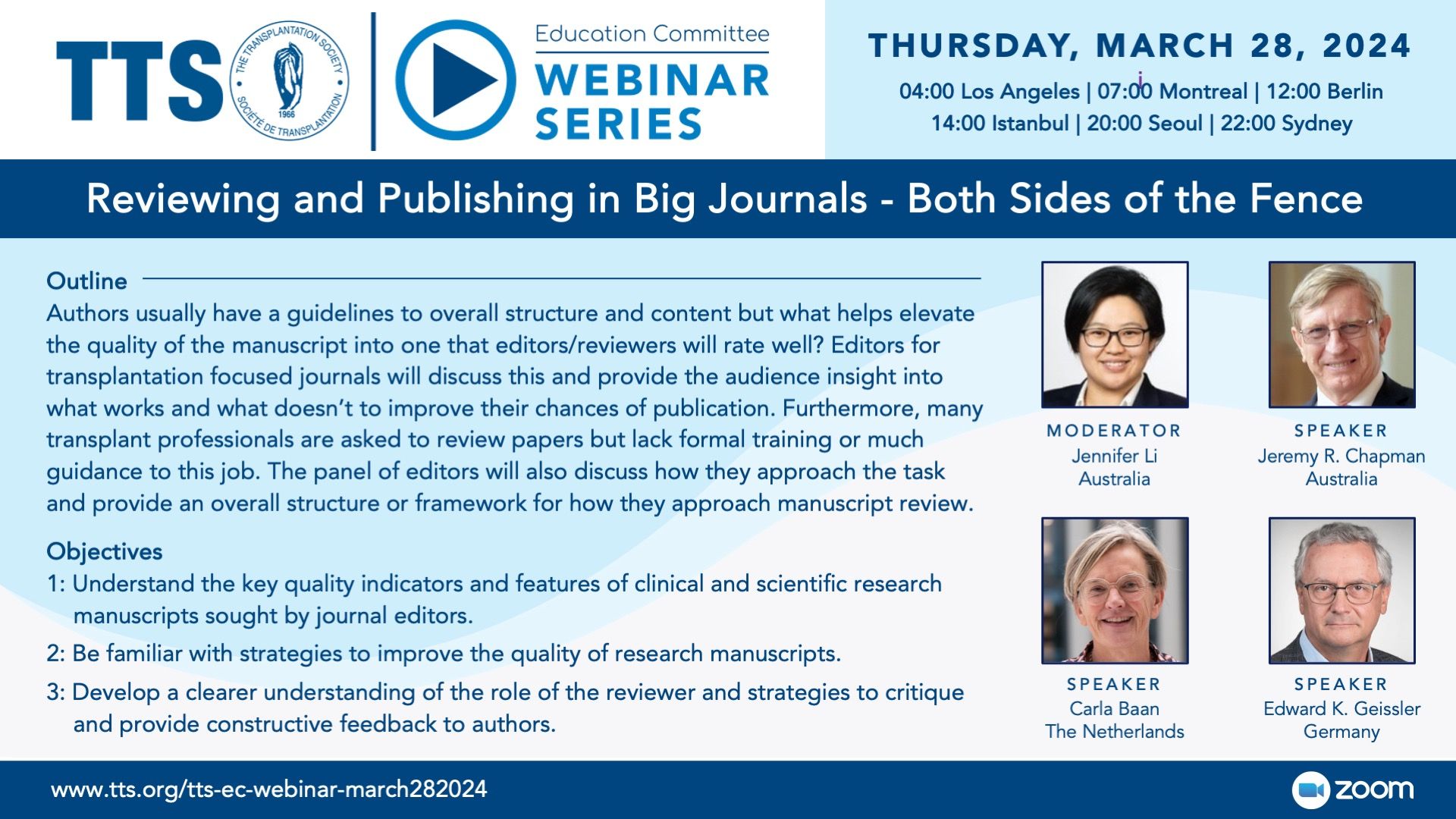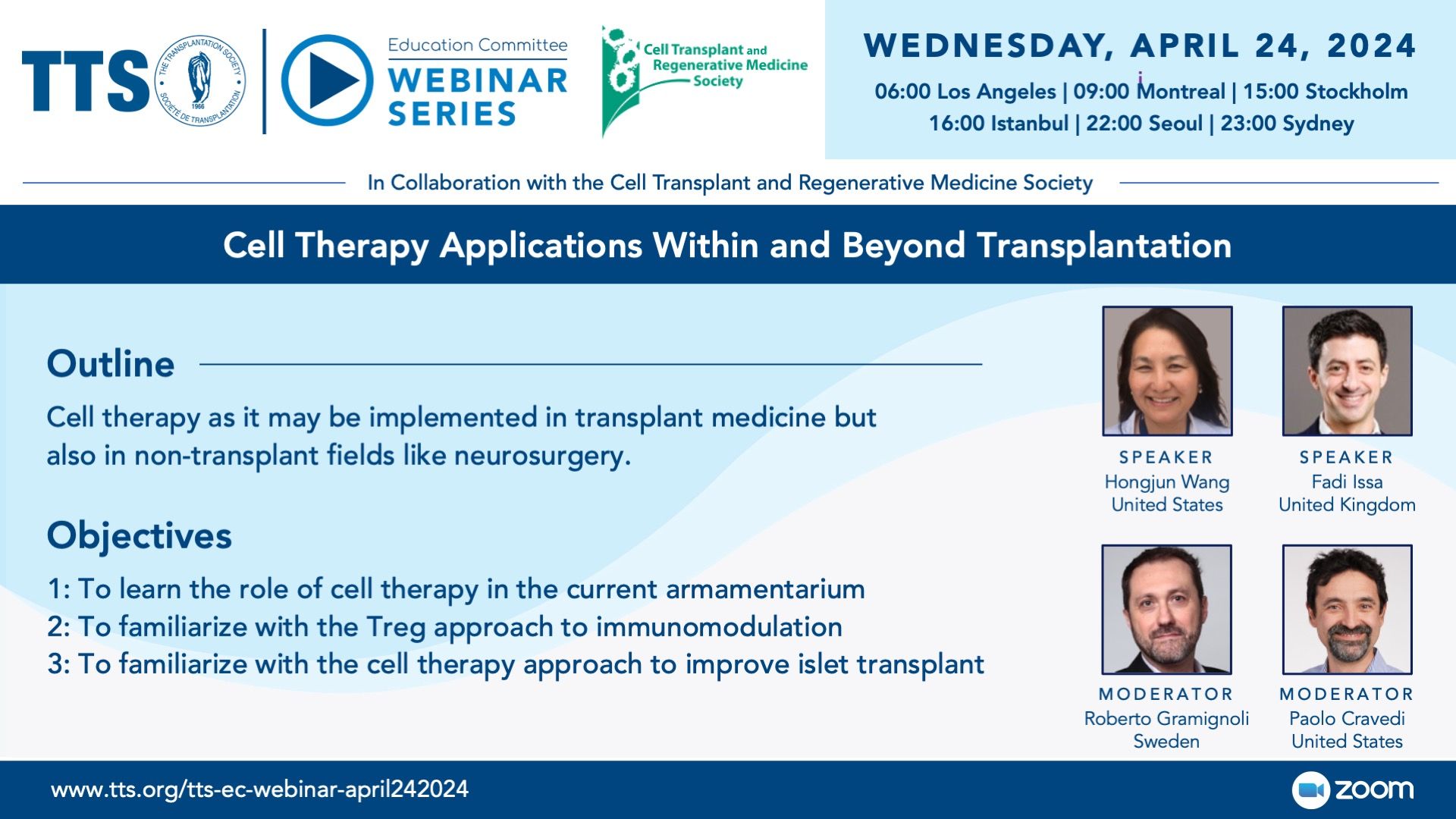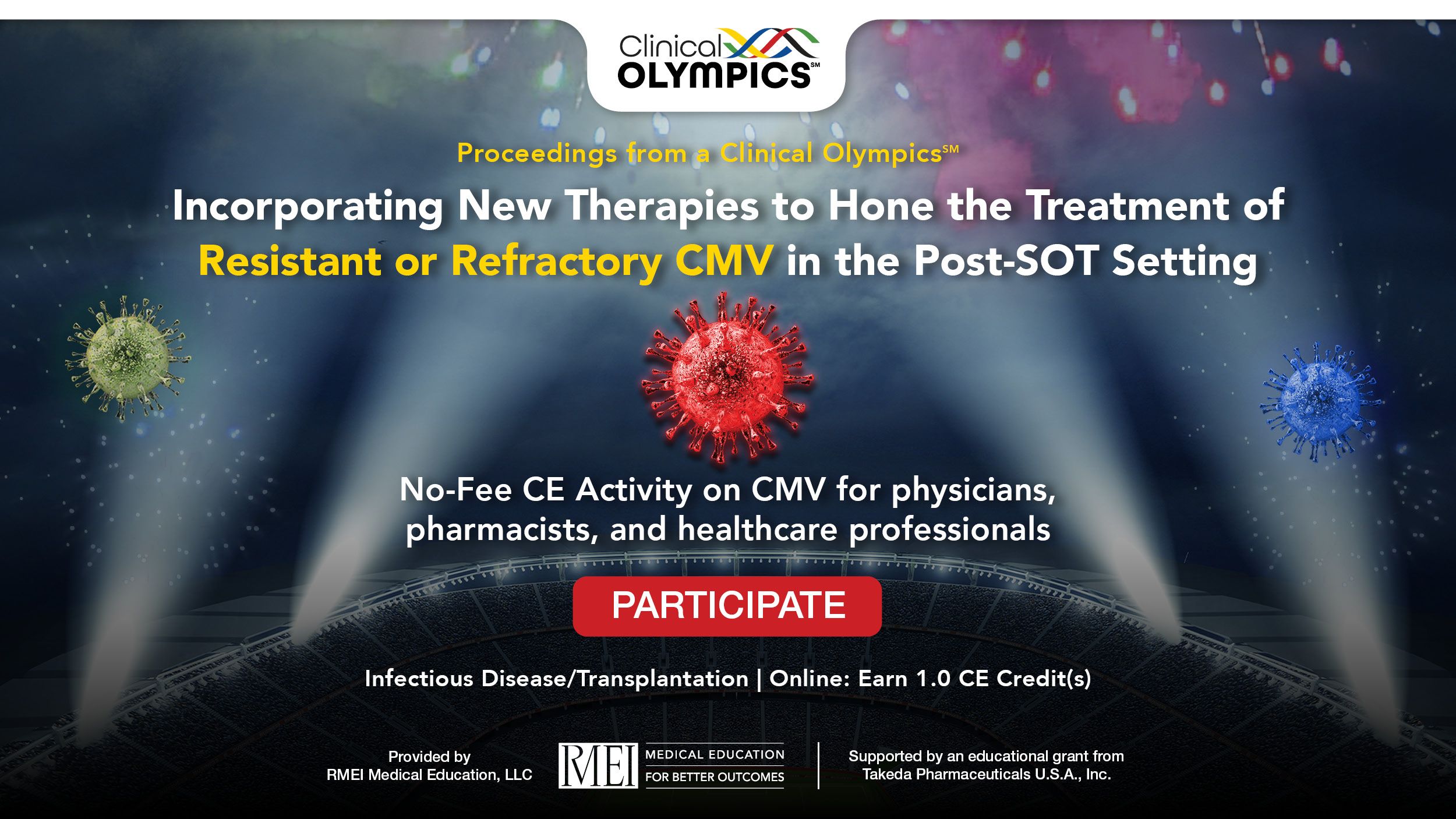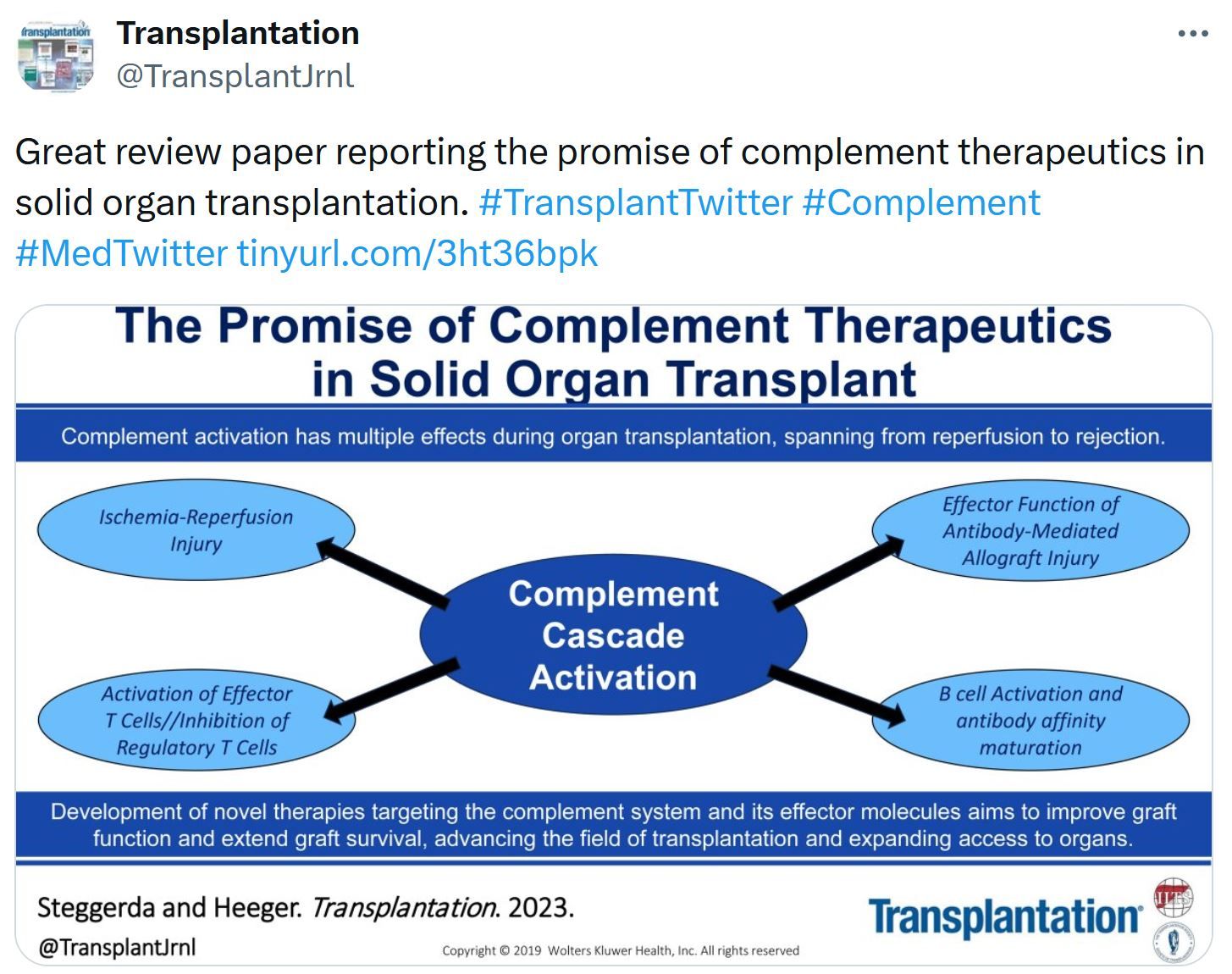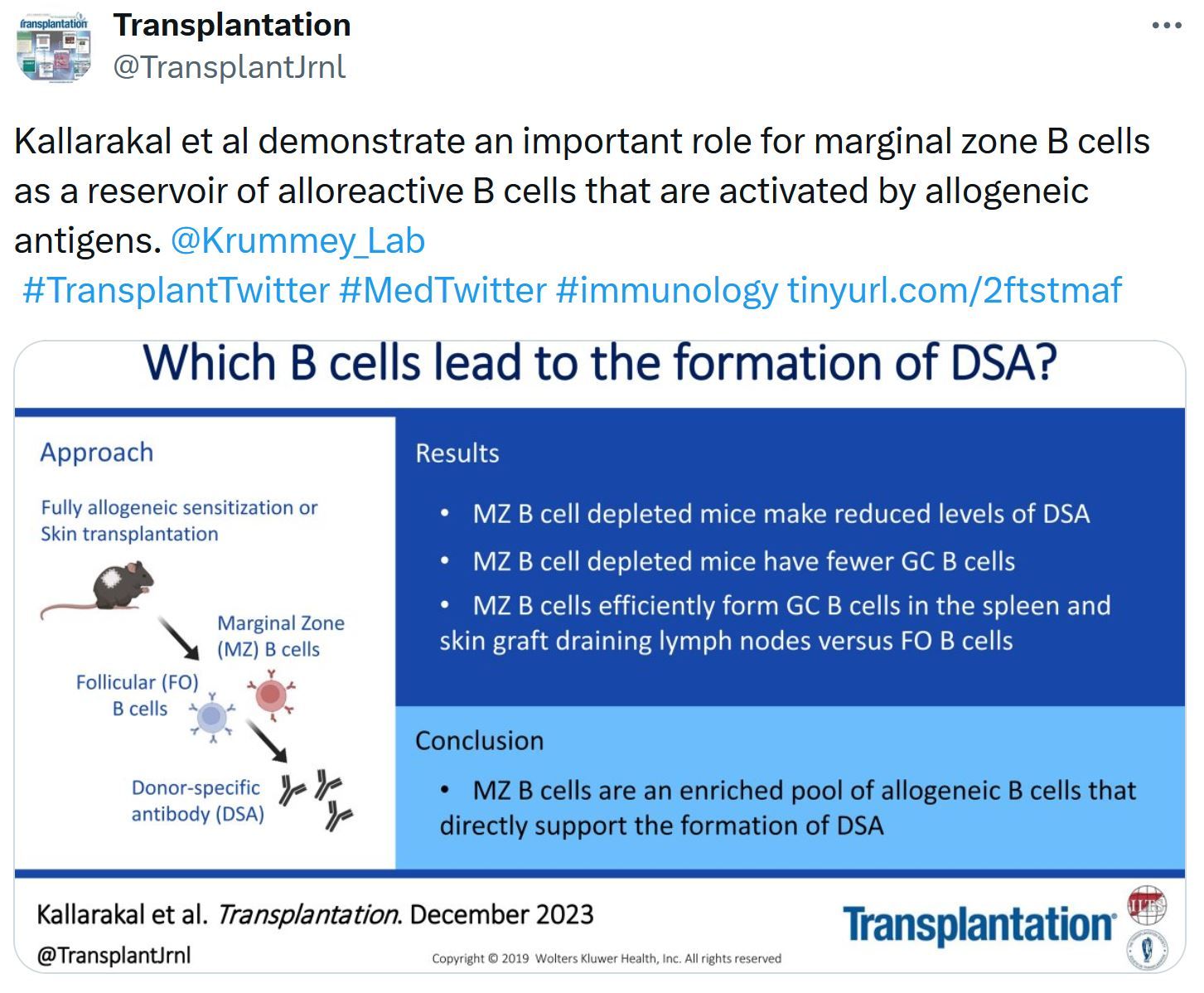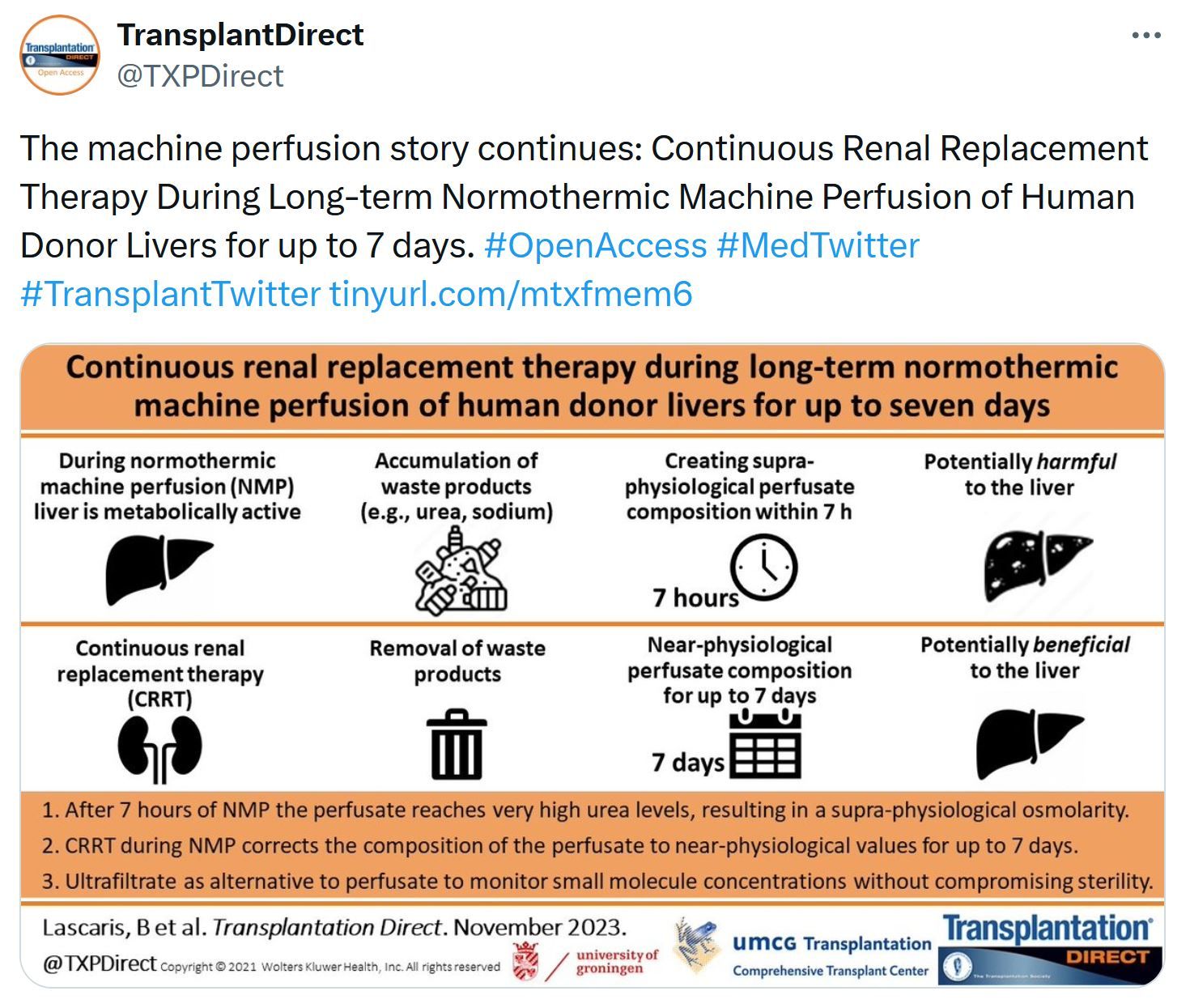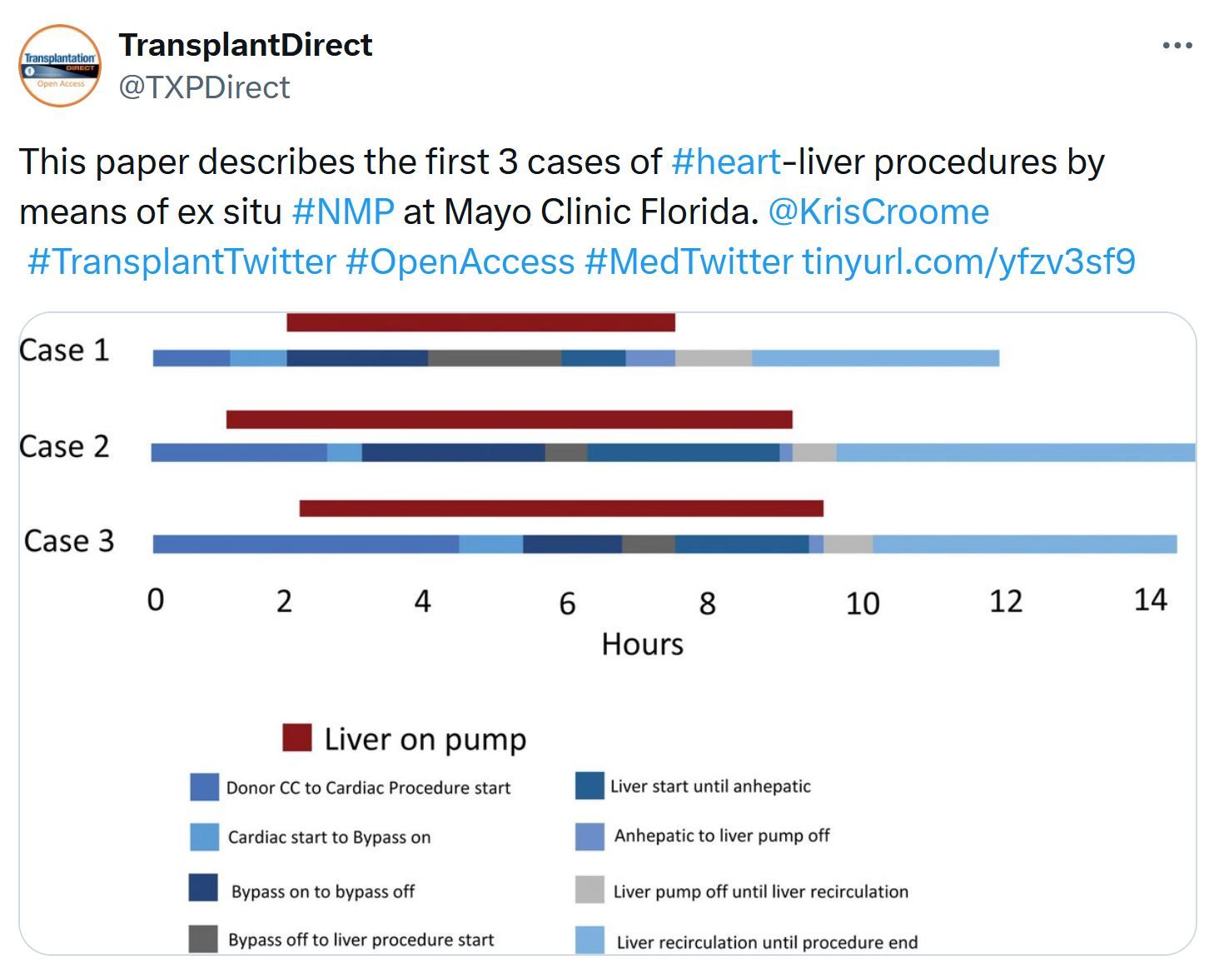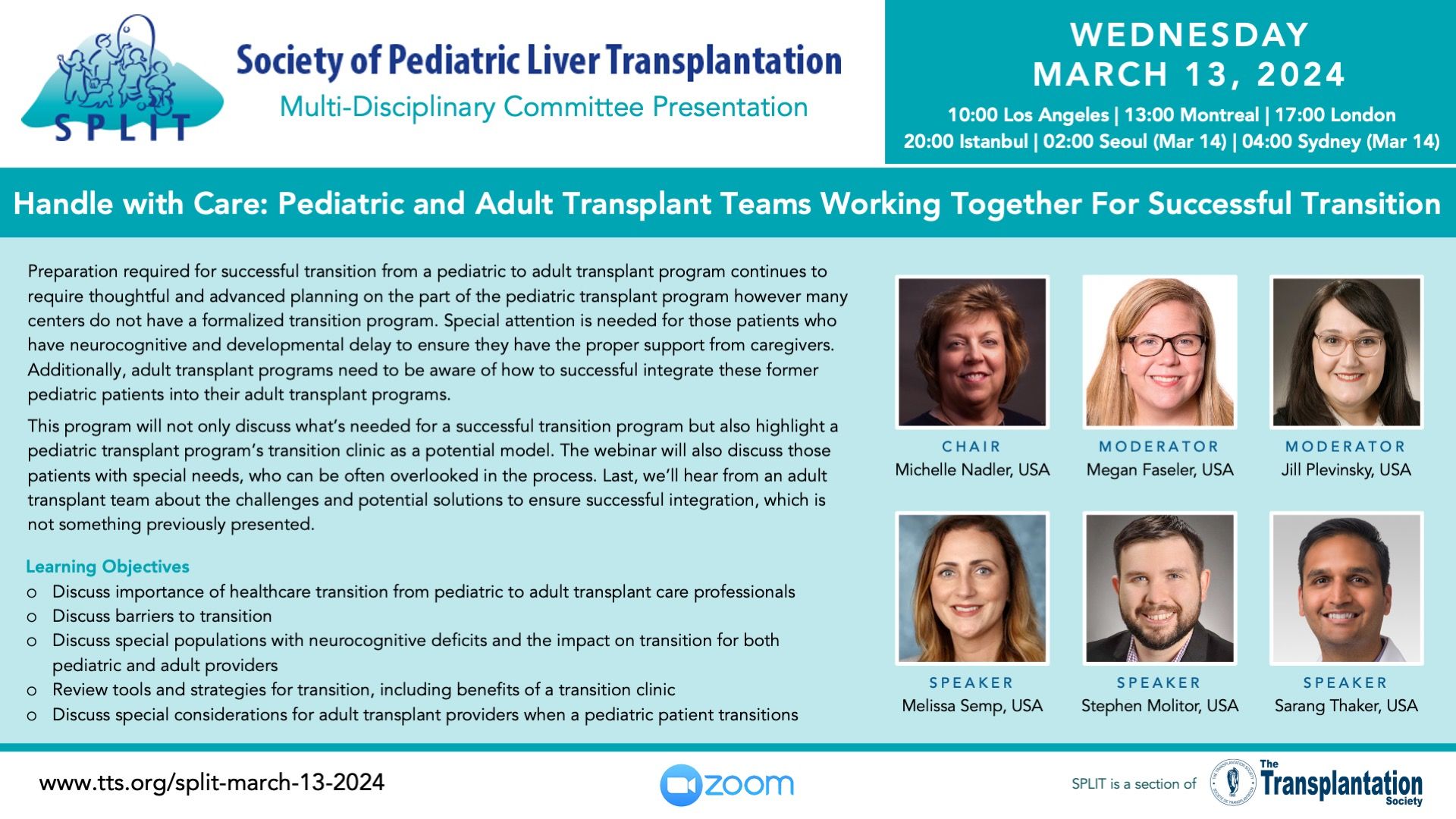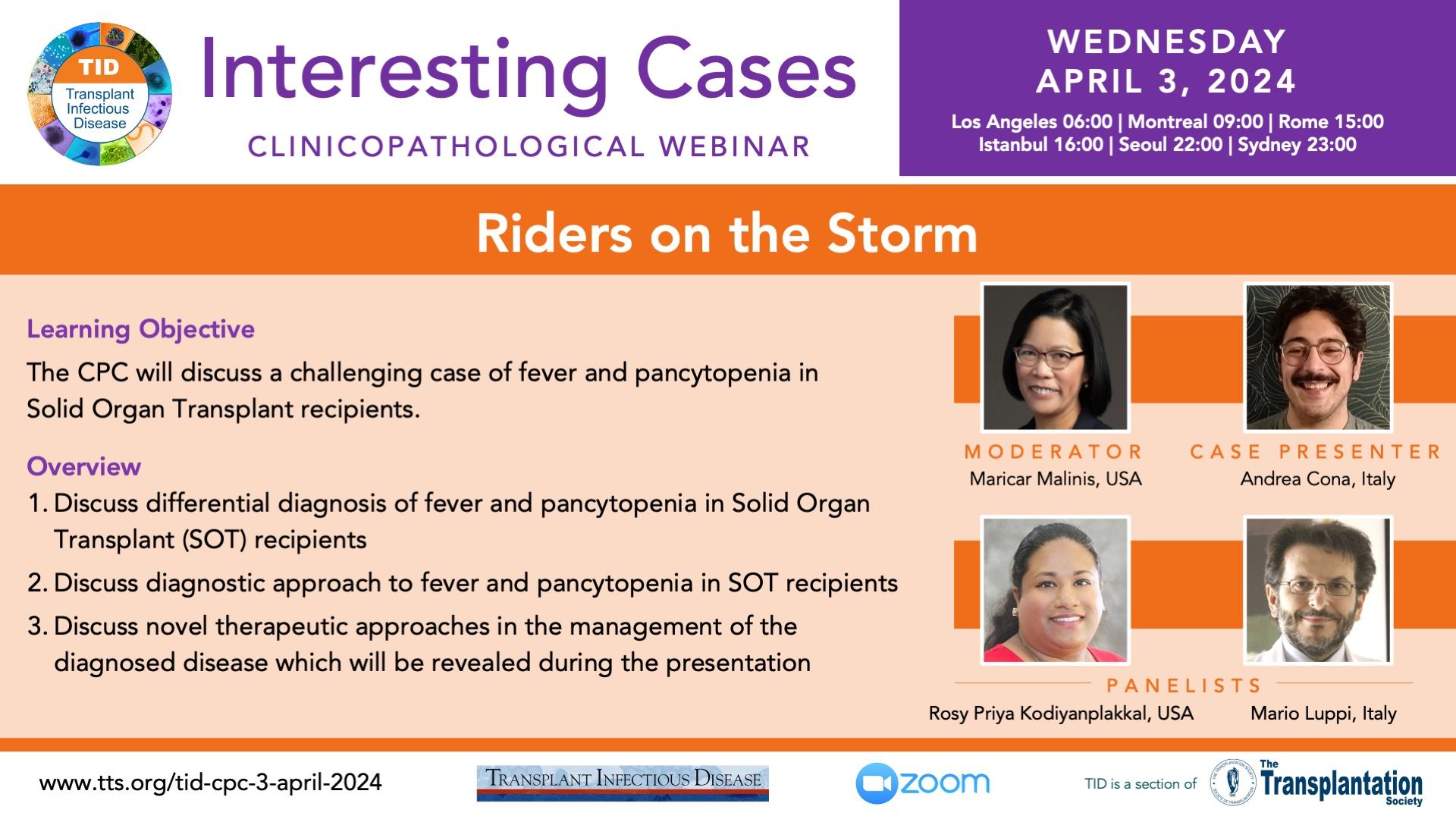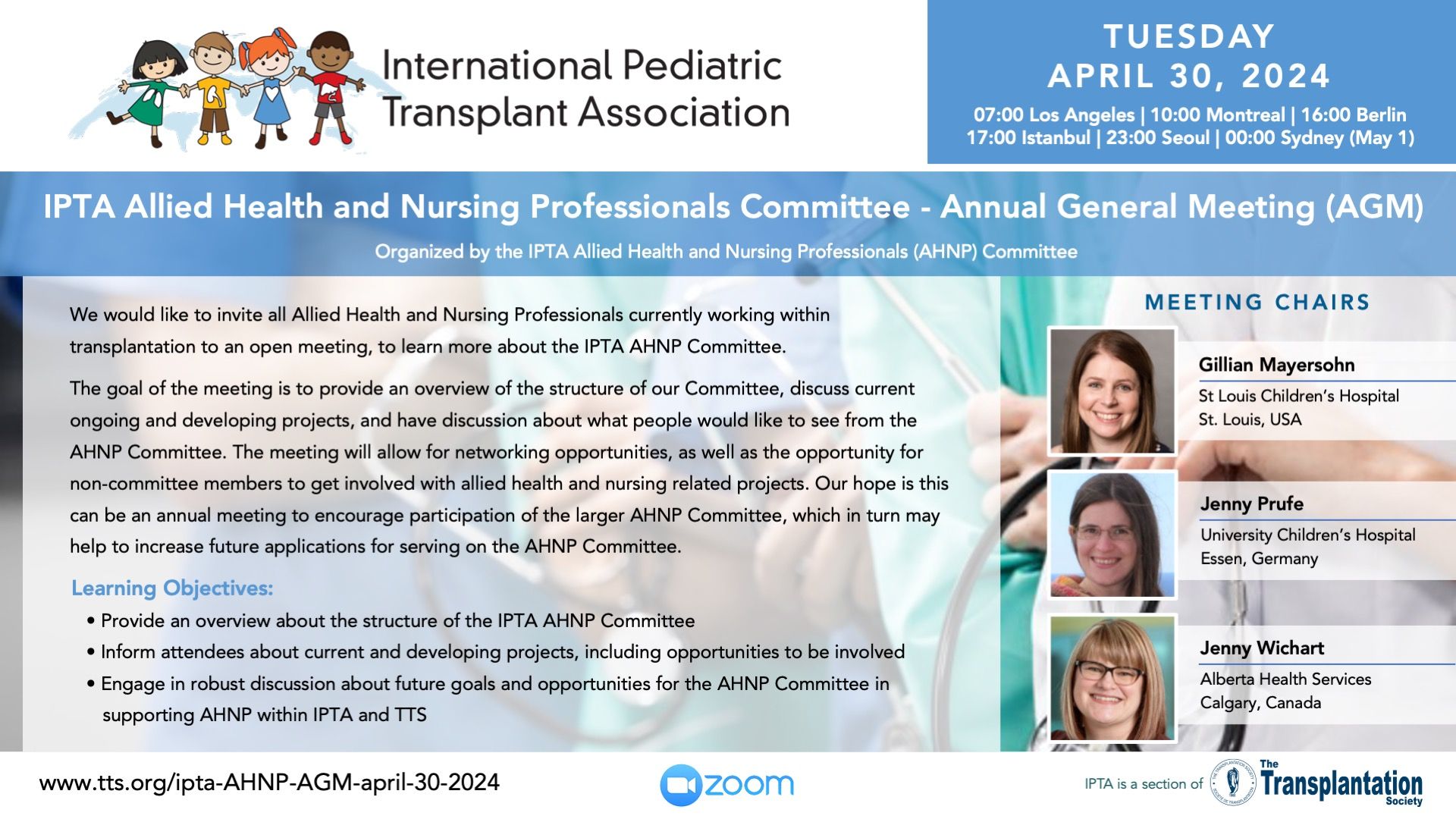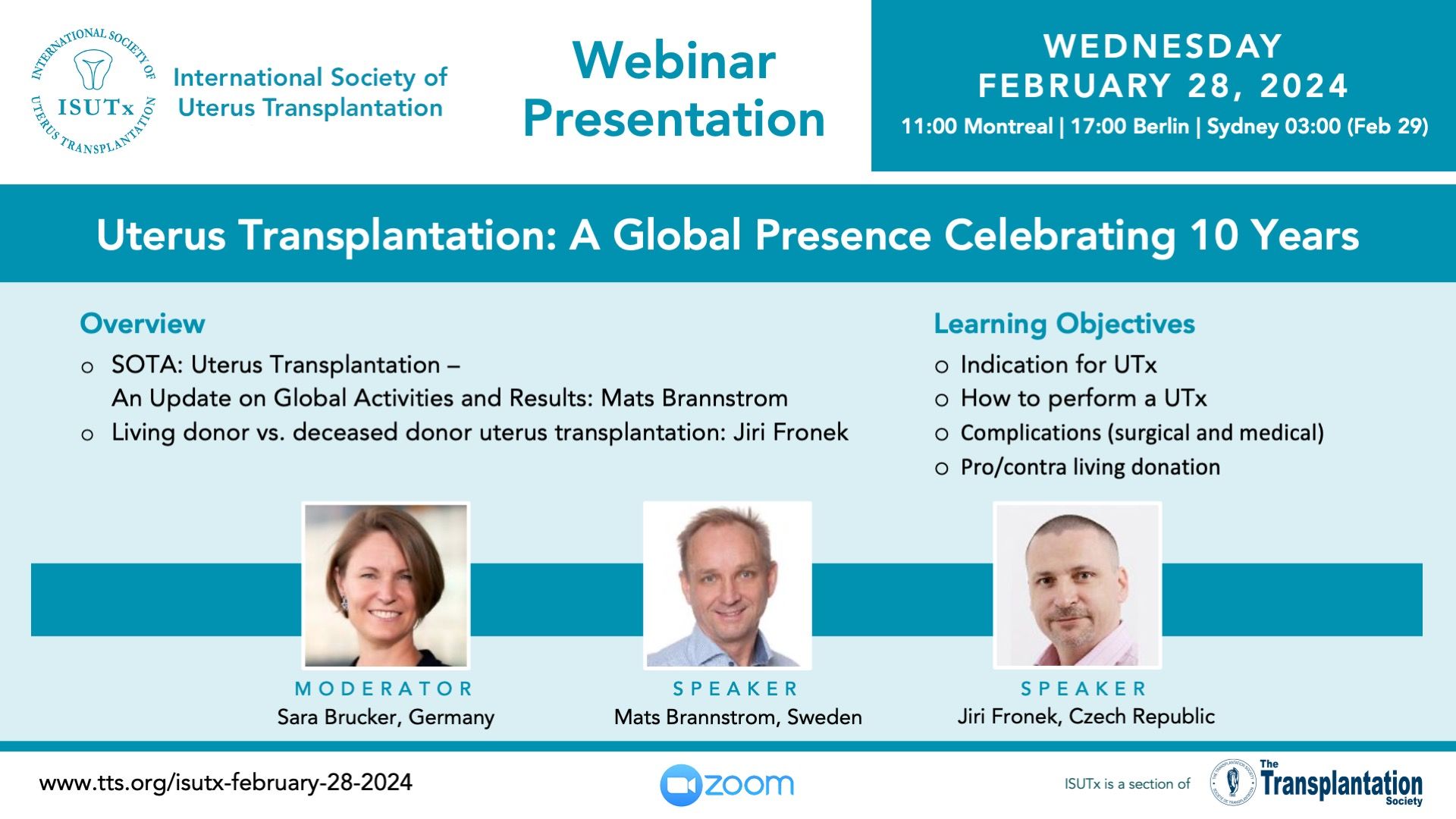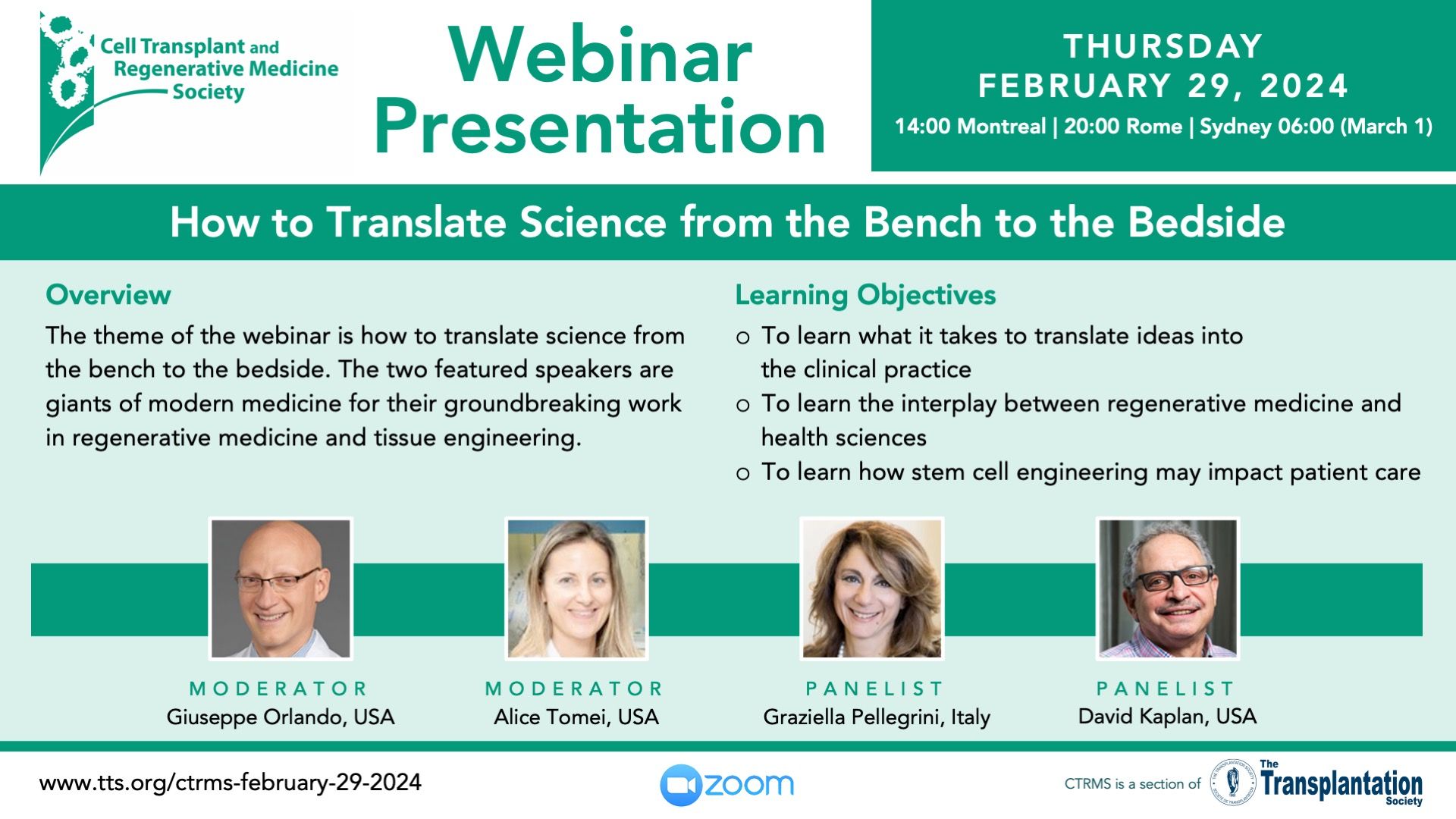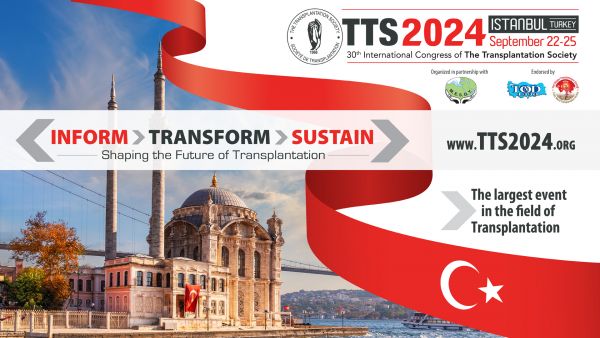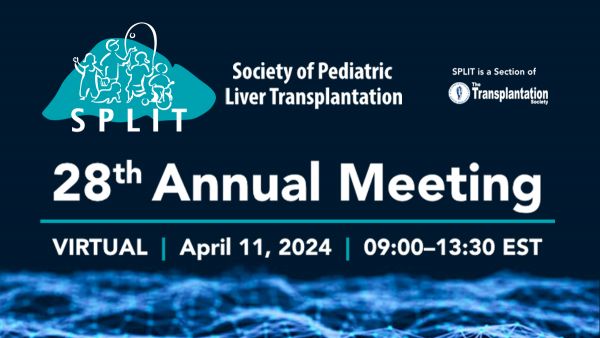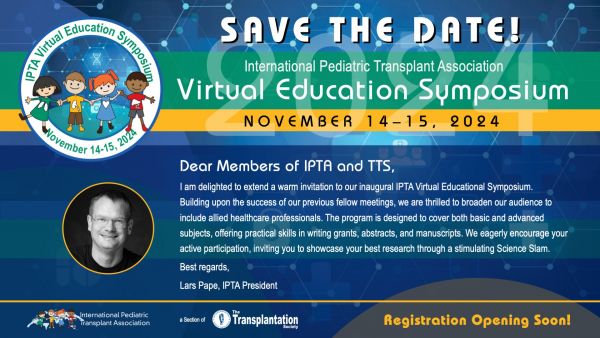
TTS 2024 Newsletter #1 - Calling all Transplantation Enthusiasts and Medical Innovators
As the Istanbul Congress approaches, we are committed to keeping the transplant community well-informed about the latest developments through a series of TTS 2024 Newsletters
This inaugural edition offers a comprehensive overview of the entire congress, and forthcoming issues will delve into specific sessions, themes, and noteworthy features. Stay tuned for in-depth insights into the upcoming event.
Just Released - Transplantation Direct - March Issue
The March issue of Transplantation Direct covers a broad cross-section in transplantation. Topics covered in kidney transplantation include microbiota diversity effects, B cell antigen presentation and rejection, significance of high EBV loads, use of extracorporal photopheresis, IgM DSA implications, urinary endotrophin as a biomarker, as well as CAR T cell therapy for PTLD and optimizing analgesia for live-donor nephrectomies. Topics in liver transplantation explored involve portopulmonary hypertension treatment in waiting-list patients, implications of sarcomatoid hepatocellular carcinoma, and CXCL8 as a biomarker of graft injury. In lung transplantation, there are articles on a surgical technique to avoid atrial fibrillation after transplantation, diagnosis and treatment of esophageal fistulas, transplantation for pulmonary AL amyloidosis, and a report on attitudes of recipients regarding pregnancy and parenthood. For those involved in heart transplantation, there is a study on risk factors related to severe acute kidney injury after allografting. On the topic of organ donation, an observational study explores still-existing disparities among Hispanic patients awaiting transplantation. We welcome you to visit our Transplantation Direct website for full and free open access to all of these articles.
Table of Contents
Kidney Transplantation
- Effectiveness of Postoperative Single-shot and Continuous Transverse Abdominis Plane Block Compared to Conventional Analgesia in Hand-assisted Laparoscopic Live-donor Nephrectomy
- Distinct Changes in Gut Microbiota of Patients With Kidney Graft Rejection
- Urinary Endotrophin and Long-term Outcomes in Kidney Transplant Recipients
- CAR T-Cell Therapy for Refractory Posttransplantation Lymphoproliferative Disorder in a Kidney Transplant Patient
- Assessment of IgM DSAs in Transplant Recipients: Relationship to De Novo IgG DSAs and Risk for Antibody Rejection
- Extracorporeal Photopheresis Reduces Fibrotic and Inflammatory Transcriptomic Biological Marker of Chronic Antibody-mediated Kidney Rejection
- Epidemiology of Epstein-Barr Virus Chronic High Viral Load in Kidney Transplant Recipients
Liver Transplantation
- The Clinical Course of Portopulmonary Hypertension and Outcomes With Endothelin Receptor Antagonist Treatment: Observational Study of Data From the US Organ Procurement and Transplantation Network
- Rapidly Progressive Pulmonary Lymphangitic Carcinomatosis After Liver Transplantation Due to Diffuse Infiltrative Sarcomatoid Hepatocellular Carcinoma
- Elevated Plasma CXCL8 Concentrations in Significant Fibrosis but Not in Subclinical Rejection After Adult Liver Transplantation
Lung Transplantation
- Practicality and Safety of Electrical Pulmonary Vein Isolation and Left Atrial Appendage Ligation in Lung Transplant Recipients With Pretransplant Atrial Fibrillation
- Practice Patterns and Attitudes Regarding Pregnancy and Parenthood After Lung Transplantation
- Diagnosis and Management of Esophageal Fistulas After Lung Transplantation: A Case Series
- Lung Transplantation for Pulmonary AL Amyloidosis
Heart Transplantation
Ethics
Erratum
TTS 2024 - Abstract Deadline is less then 2 weeks away!
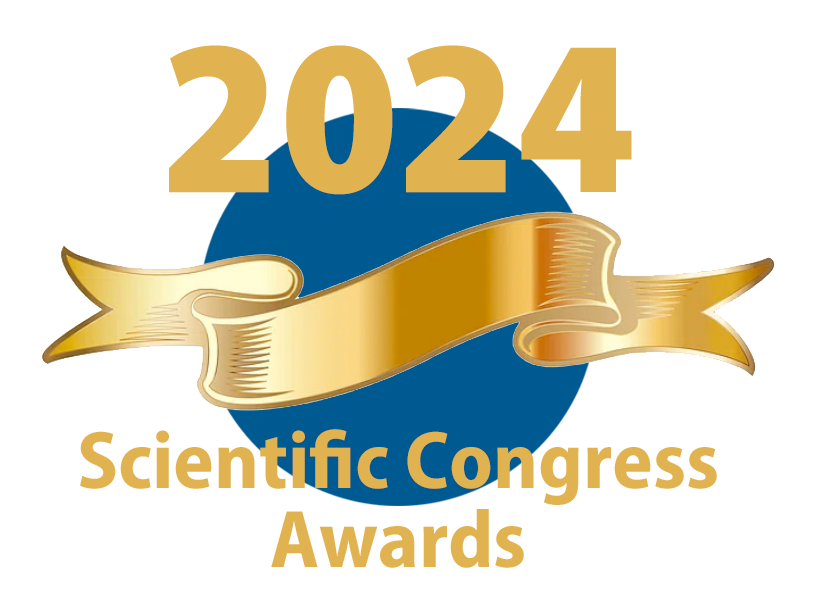
2024 Scientific Congress Awards
To be eligible, an individual must:
- Submit an abstract to TTS 2024 as presenting author
- Be a member in good standing of TTS
- Be a trainee/fellow/PhD student OR Allied health professional OR resident of emerging economy nation
The TTS scientific congress awards are designed to help offset expenses incurred to attend the TTS congress in Istanbul (in-person ONLY) and are awarded based on the scientific merit of the applicants.
Award Application Deadline: April 26, 2024
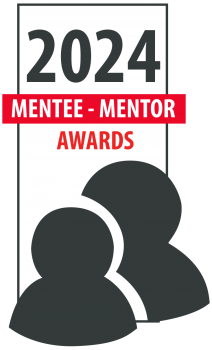
2024 Mentee-Mentor Awards
The Transplantation Society, in collaboration with National and International Societies acknowledges the contribution of basic science to the field of transplantation by offering Mentee-Mentor awards.
International Basic and Translational Science Mentee-Mentor Awards
TTS-ISOT La Renon International Basic and clinical sciences Mentee-Mentor Awards
Award Application Deadline: April 26, 2024
TTS 2028 Congress - Call for Expressions of Interest

Deadline to submit your expression of interest is March 28, 2024
Based on regional rotation, The Transplantation Society (TTS) plans to hold its 2028 TTS Biennial Congress in East, South or Southeast Asia. The Congress is anticipated to be held over 4 to 5 days – Saturday/Sunday to a Wednesday.
TTS welcomes interested societies to submit an expression of interest (EOI) to host the 32nd International Congress of The Transplantation Society in 2028. TTS IHQ will then work with shortlisted Host Societies (HS) to collect the information required for Council’s consideration and approval.
The Congresses are major undertakings and will require extensive planning, preparation and collaboration between TTS and local hosts. Given the Society's Congresses attract 3,000 – 4,500 registrants recommended venues must accommodate up to 4,000 delegates.
2024 Education Committee Webinar Series
In collaboration with the various Committees and Sections of the Society, the Education Committee is proud to present a series of educational webinars that have been specially designed for the whole TTS membership. The series has been carefully curated with the aim of addressing a wide range of topics, and drawing on diverse expertise and perspectives from around the world. Covering ethical controversies, cutting edge science, and fundamental challenges in policy-making and clinical care for transplant recipients and donors, we hope the program will provide valuable and engaging opportunities for all members to advance their knowledge and skills.
Click an image below to visit the individual webinar page.
CME Accredited Online Ecucation Activity: Cytomegalovirus (CME)
Join Drs. Kotton, Pereira, and Razonable as they discuss the management of cytomegalovirus (CMV) infection in solid organ transplant (SOT) patients. Topics covered include treatment challenges, laboratory testing, and new therapy for refractory or resistant CMV.

Upcoming Webinar Presentations
Click an image below to visit the indiviual webinar page.
In Case You Missed It - Recent Recordings
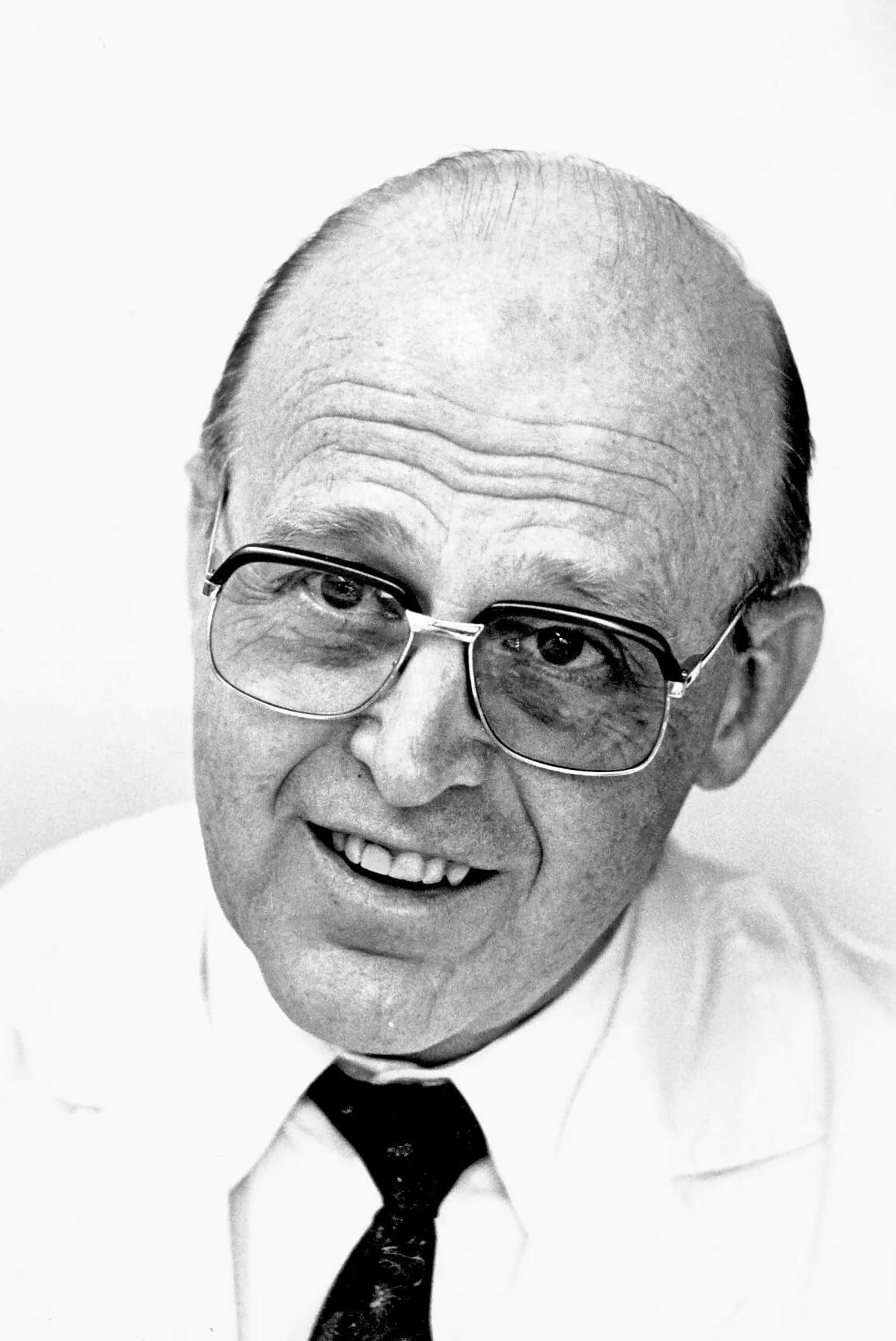
Guy Alexandre, Transplant Surgeon Who Redefined Death, Dies at 89
His willingness to remove kidneys from brain-dead patients increased organ viability while challenging the line between living and dead.
Guy Alexandre, a Belgian transplant surgeon who in the 1960s risked professional censure by removing kidneys from brain-dead patients whose hearts were still beating — a procedure that greatly improved organ viability while challenging the medical definition of death itself — died on Feb. 14 at his home in Brussels. He was 89.
Contact
Address
The Transplantation Society
International Headquarters
740 Notre-Dame Ouest
Suite 1245
Montréal, QC, H3C 3X6
Canada
Используйте Вавада казино для игры с бонусом — активируйте промокод и начните выигрывать уже сегодня!

